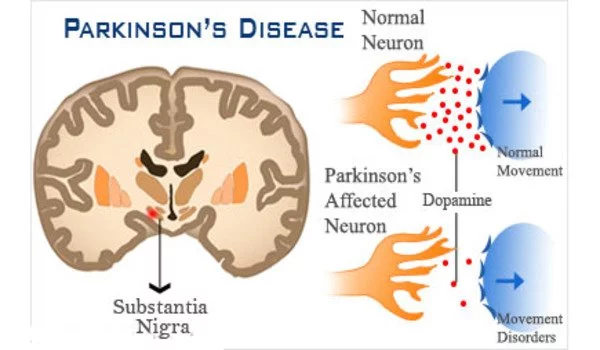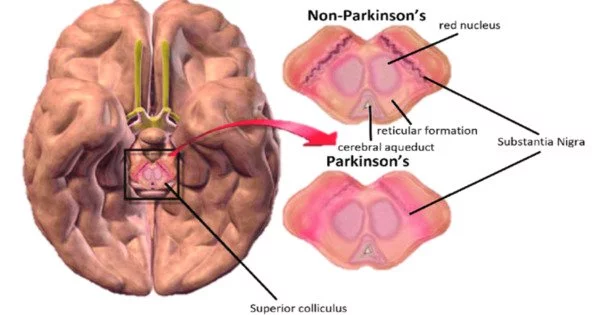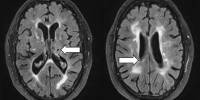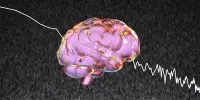Parkinson’s disease is a neurodegenerative ailment that primarily affects dopamine-producing neurons in the brain, notably in a region known as the substantia nigra. The loss of dopamine in the brain causes a number of motor symptoms, including tremors, rigidity, and bradykinesia (slowness of movement), which are typical of the disease.
In Parkinson’s disease, the cerebral cortex can take up functions from a deeper portion of the brain that has been injured, when dopamine-producing cells have been gone. The strength of compensation by the cerebral cortex influences how many symptoms people have. This is demonstrated in a publication by Radboud University Medical Center. Patients can boost compensatory compensation, for example, through athletics, and therefore slow down the disease process.
It was already known that dopamine-producing cells in the brain gradually die in Parkinson’s disease. As a result, patients are given additional dopamine as medication. However, only a tenuous link has been shown between the loss of those cells and the severity of Parkinson’s symptoms. Even if all of the cells have vanished, one person will have modest symptoms while another will have many more. Radboudumc researchers investigated whether something else was going on.
They observed that the cerebral cortex, the outer layer of the brain, can compensate for the loss of dopamine-producing cells, postponing the progression of symptoms. It is revealed that the severity of symptoms is directly connected to cerebral cortical compensation. The more active it is in taking up tasks, the slower it moves and the better its thinking. Doctors have long hypothesized that such a compensatory mechanism exists, but it has now been proven for the first time.
In Parkinson’s disease, we treat the dopamine shortage with medicines. However, with these new findings, we will now look much more closely at how we may increase that compensation by the cerebral cortex.
Rick Helmich
Smoothness
The findings are based on a study of 353 Parkinson’s patients and 60 healthy volunteers. They were all tested in an MRI scanner. The test was a computer game in which participants had to make both easy and difficult choices, which required a lot of mental power. The MRI scanner allowed the researchers to identify brain areas that were active during the game. They anticipated that making tough choices increases compensation and that compensation deployment varies amongst people.
First, they discovered that the basal ganglia, a brain region that is heavily dependent on dopamine, is definitely destroyed and exhibits significantly less activity in Parkinson’s patients than in healthy volunteers. The basal ganglia are located deep within the brain, beneath the cerebral cortex. This part of the brain permits people to move and think smoothly. As a result, damage in this area causes Parkinson’s disease-related slowness of movement and thinking.

Reinforcing compensation
It was also shown that in persons with Parkinson’s disease, there is a very obvious association between the intensity of symptoms and cerebral cortical activity. ‘People with mild symptoms showed substantially higher activity in the cerebral cortex, notably in areas involved in controlling movement,’ says PhD candidate Martin Johansson. These areas were even more active than in healthy individuals, indicating that they have a compensating role. On the contrary, the cerebral cortex was substantially less active in patients with severe symptoms than in healthy participants.’
The concept of compensation by healthy brain parts to alleviate Parkinson’s symptoms is not a common approach in the treatment of the disease. Instead, the standard treatment options for Parkinson’s disease focus on increasing dopamine levels in the brain or addressing the motor symptoms through various therapeutic strategies.
This revelation provides new treatment and lifestyle options. ‘In Parkinson’s disease, we treat the dopamine shortage with medicines. However, with these new findings, we will now look much more closely at how we may increase that compensation by the cerebral cortex,’ says Rick Helmich, neurologist at Radboudumc. ‘A previous study found that exercising three times per week helps with symptoms and avoids cerebral cortex shrinking. We now understand why the cerebral cortex is so crucial, according to the current study.’
















